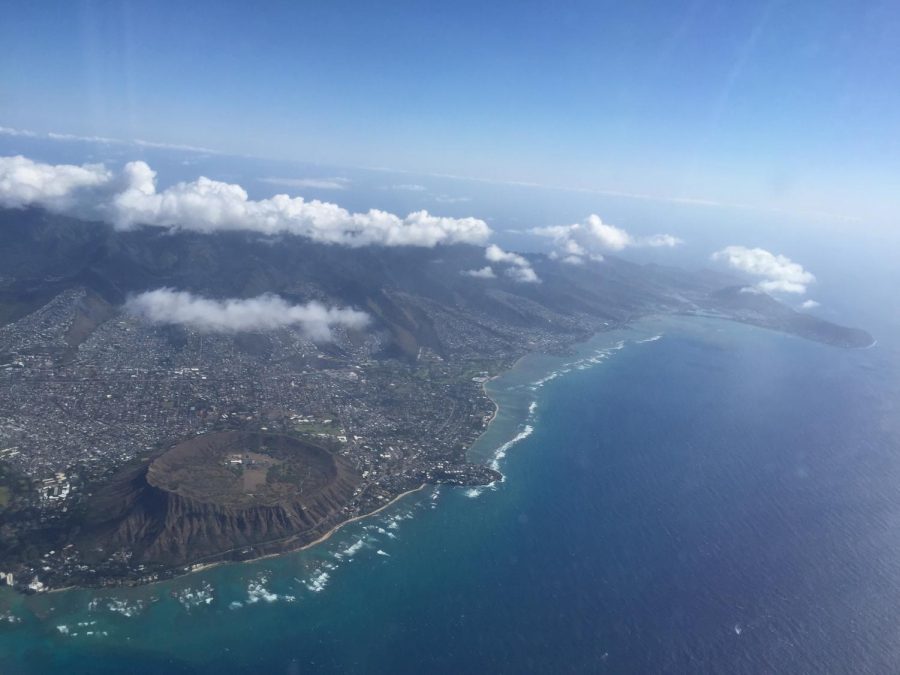Hawaii Tests Nuclear Warning Sirens For 1st Time Since Cold War
The state of Hawaii tested its nuclear warning sirens that have not been used since the Cold War era.
The monthly tsunami siren testing, Friday began promptly at 11:40 a.m. like normal (the first day of the month), but was followed by another alarm at 11:45 a.m.
This alarm was an “attack warning” siren that had been revived from Cold War use in the wake of recent tensions with North Korea as it has tested missiles that have the capacity to reach Hawaiian shores and the mainland U.S.
The siren will be sounded in the event of a nuclear attack on the islands. It can be discerned from the Tsunami warning siren by a fluctuating wailing tone as opposed to the solid steady tone of the other one.
Being that this siren had been out of commission for so long, locals had mixed reactions to the tests and the possibility of a strike from North Korea. Aiea resident Greg Kamaka, 38, heard the alarm while doing yard work at his home.
“It was definitely interesting to hear a second siren after the tsunami one that we hear every month,” Kamaka said. “As for the potential of an attack, I highly doubt that would happen, but it’s nice to know the state is taking precaution.”
Charmaine Jones, a 22-year-old second year Business major at the Chaminade University of Honolulu, feels that the test would easily become a part of the monthly routine.
“We’re already so used to hearing the tsunami warning alarms every month, one more siren isn’t going to change much,” Jones said. “Half the time, I barely hear the tsunami warning alarm in the first place, but it is good that Hawaii is preparing for something crazy like that to happen.”
Although peace of mind also comes with a flurry of “what if’s?” for some Oahu residents. The provocation of North Korean leader Kim Jong-un seemed uncomfortably possible with the president’s trip through Asia in early November in which President Trump visited South Korea and discussed the ongoing crisis with their northern counterparts.
“There were so many things going through my mind when I first heard the warning alarm,” said 31-year-old Natasha Smith, a Honolulu resident. “With all the craziness that’s been surrounding us [the U.S.] and them [North Korea] lately, it forces you to face a harsh reality when they start testing out sirens they haven’t used in decades.”
According to Hawaii News Now, in the event of an actual attack, Hawaii would have just 12 to 13 minutes to prepare.
“Just minutes to say goodbye to the people you care about and pray for a miracle,” Smith said. “I can’t even imagine what I would do if there ever was an actual attack and the fact that this is the world we live in today is sad.”
Justine Yadao, a 26-year-old Criminal Justice major at Chaminade University of Honolulu, was awestruck when learning of how long we’d have to prepare for an attack if the alarm should sound.
“Fifteen minutes? That’s it,” Yadao said. “I can’t ever do anything in 15 minutes, let alone tell all the people I love and care about goodbye. It’s scary when you put it in minutes like that. Kind of shows the reality of the situation.”
While an attack is highly unlikely, the testing of this siren brought back childhood memories for some Oahu residents. Kaneohe resident Miyako Sakamoto, who is 72 years old, was in grade school when the sirens were first introduced during Cold War.
“Hearing the sirens for the first time in decades brought back a lot of memories from when they used it first,” Sakamoto said. “During the war time like that, it was really uncertain, everything. We did the drills, hiding under desks and stuff in case there was an attack. Now, it’s kinda eerie to hear it again.”
In an interview with Hawaii News Now, Gov. David Ige said the testing of this siren is the “new normal.”
“We believe it is imperative that we be prepared for every disaster in today’s world and that includes a nuclear attack,” Ige said to the local TV news station.
